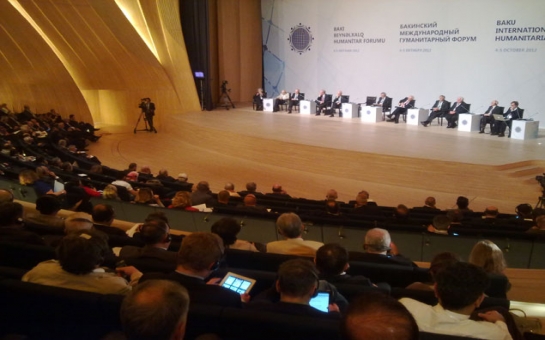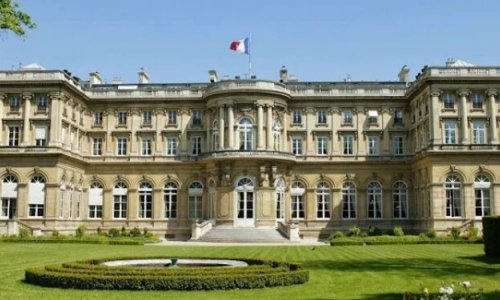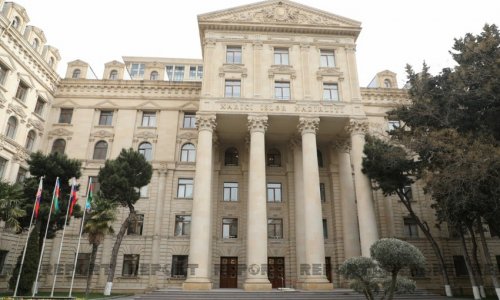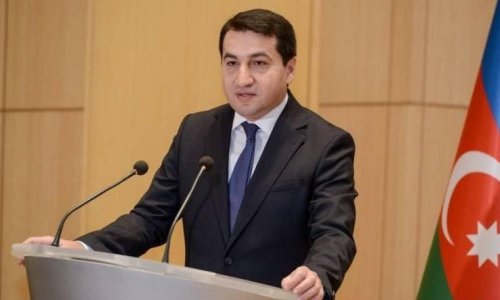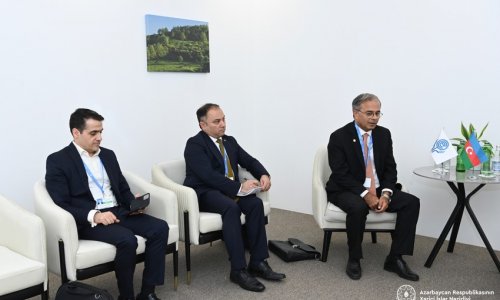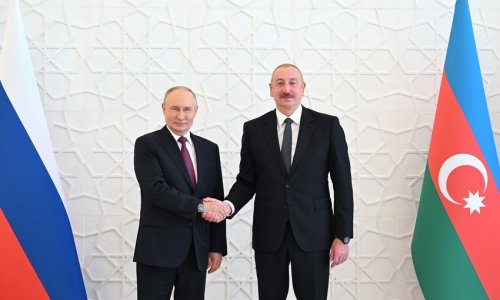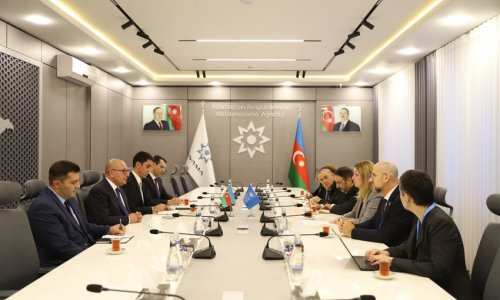UNDP administrator Helen Clark made the following speech at the IV Baku International Humanitarian Forum on Oct. 2.
It is my pleasure to represent United Nations Secretary-General Ban Ki-moon at this opening of the IV International Humanitarian Forum. At the outset, let me thank his Excellency, the President of Azerbaijan, Mr. Ilham Aliyev, for convening today’s Forum which provides an important opportunity for an exchange of ideas on a wide range of issues.
In my brief address today I would like to comment on UNDP’s work with Azerbaijan aimed at promoting human development, and on a number of the initiatives developed to that end here which are very innovative. As Azerbaijan steps up its South-South Co-operation, UNDP will be delighted to partner with the country in sharing its knowledge and expertise with others who are seeking solutions to challenges similar to those which Azerbaijan has been tackling.
Azerbaijan has been endowed with large reserves of valuable natural resources. History tells us, however, that while the extraction of such resources may significantly raise Gross Domestic Product per capita, it does not necessarily lift either government revenues or the level of human development. Translating natural resource wealth into wealth for the country and greater human development requires deliberate public policy decisions which will achieve those ends. Azerbaijan has made significant decisions in this respect.
In September 1994, Azerbaijan signed what has been called the `Contract of the Century’ - a “production-sharing agreement” with a consortium of foreign oil companies. From the profits of this initial agreement to develop the country’s Caspian oil reserves, Azerbaijan was to receive eighty per cent of the profits. [u1]
Let me take this opportunity to congratulate Azerbaijan and its partners on the twentieth anniversary celebration of the Contract of the Century that took place here in Baku on 20 September. This was celebrated with the Southern Gas Corridor groundbreaking ceremony for the new pipeline which will bring Azerbaijani gas reserves all the way to Europe.
This Contract opened up major new opportunities for Azerbaijan’s development. As for other resource-rich countries, it was also a time for reflection – on how Azerbaijan’s wealth could contribute to lifting human development.
More than a decade ago, UNDP helped Azerbaijan shape the concept of turning its “Black Gold to Human Gold”. The initiative focused on developing an internationally competitive non-oil sector, and developing and strengthening the capacities of people. Over the years, Azerbaijan has seen a drastic reduction in the level of poverty, new investments in social services, the establishment of a social security system, and rising salaries.
The concept of “Black Gold to Human Gold” remains as relevant now as it was when it was launched. Continuing to lift human development will be critical for the achievement of Azerbaijan’s national development strategy, Vision 2020. At UNDP we are fully committed to supporting Azerbaijan in taking this vision forward.
The Millennium Development Goals have remained relevant for Azerbaijan, with challenges still around the goals for gender equality and women’s empowerment and a number of the health and environmental targets. As it is likely that the unfinished business of the MDGs will carry over into the post-2015 global development agenda, the Sustainable Development Goals expected to be adopted by world leaders next September will also be relevant to Azerbaijan, and will contain new challenges too, given the emphasis UN Member States are placing on ensuring that no one gets left behind in development and that human development is pursued in a manner compatible with environmental sustainability.
Azerbaijan is well placed to share its development experiences with other countries through South-South and Triangular Co-operation. Indeed, UNDP and Azerbaijan have already partnered on support provided by the Ministry of Communications and High Technologies here to its Afghanistan counterpart through the UNDP offices in Baku and Kabul.
Last year, in the Plenary Session of this Forum, the former President of Turkey, Suleyman Demirel, emphasized that the Black Gold to Human Gold initiative could serve as a model for other countries to explore. At UNDP, we agree, and we see many other possibilities for sharing Azerbaijan’s innovations too.
For example:
- UNDP has [u1] welcomed the establishment of the ASAN Service Center – a one-stop shop for access to public documentation. Since its establishment, the service provided by ASAN has significantly reduced waiting times and costs for people wanting to obtain documents like birth certificates, permits, and public services. This increases the efficiency of the public service, and reduces opportunities for corruption. This approach has been a great success here in Azerbaijan, and will be of interest to other countries seeking to modernize their public services. UNDP co-operated with ASAN on formulating its longer term strategy. I will have the pleasure of visiting the Center tomorrow.
- The country’s new pension system administration is another excellent example of Azerbaijan’s innovative approaches. UNDP was pleased to work on this initiative which has set up one of the world’s most modern pension system administrations. Payments are made to 99 per cent of pensioners electronically, and state-of-the-art IT systems have been installed to achieve that. This is a remarkable achievement, which other countries may well wish to emulate.
Azerbaijan also has unique experiences to share in areas as wide-ranging as e-governance, mine clearance, oil revenue management, and youth policies and programmes. Let me add how pleased the United Nations Office of the Secretary- General’s Envoy on Youth, UNDP, and UNESCO are to be co-conveners of the First Global Forum on Youth Policies here in Baku with the Ministry of Youth and Sport and the Council of Europe. We are also highly appreciative of Azerbaijan being an early funder of the Office of the Secretary-General’s Youth Envoy,
UNDP welcomes the initiative of the Government of Azerbaijan to establish the Azerbaijan International Development Agency (AIDA) to manage its development assistance. We will be very happy to work with AIDA as it builds its capacity and as a partner with it in providing development co-operation. We note a number of contributions which Azerbaijan has already made to other countries, including for disaster relief, and to UNESCO programmes.
We believe that engaging in South-South and Triangular Co-operation will be of benefit to both partner countries and to Azerbaijan itself. It will strengthen bonds between countries and between specialists and experts across borders, providing a strong basis for future co-operation. It will position Azerbaijan as a centre of excellence in specific areas, which will ultimately also add to its capacity for export of a wider range of goods and services.
UNDP, with its global network of Country Offices and its programming in more than 170 countries, is uniquely placed to facilitate South-South and Triangular Co-operation. We are excited about the potential to work alongside Azerbaijan as it develops its international partnerships further, in the interests of sharing innovative approaches to human development, including through ICTs, and modernized public administration.
Once again, I thank the Government of Azerbaijan for the invitation to attend this Forum, and I wish all participants a very successful Forum.
Bakudaily.Az

